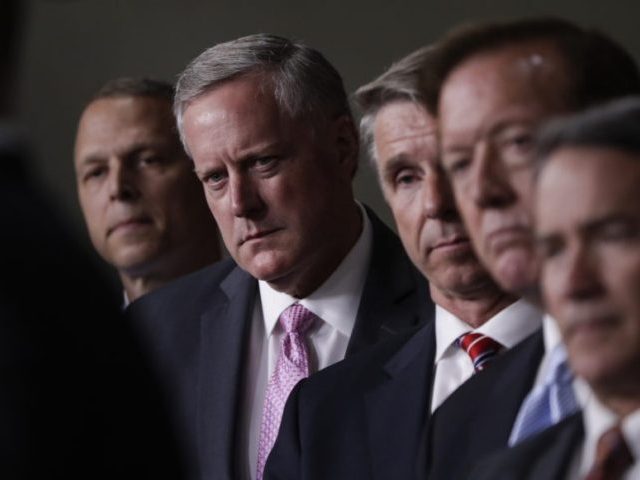One of the most perplexing stories of this young administration is the surprising influence of a faction of the Republican Party that was dead-set against the nomination of Donald Trump, conspired behind the scenes to defeat him in the general election, and oppose almost every major aspect of the policy agenda he was elected to implement.
It is no coincidence the Koch brothers and their minions in Washington were right at the center of the slow train wreck that was the Obamacare repeal effort: the Koch network not only commands considerable clout within the GOP caucus on Capitol Hill, but they have had remarkable success in infiltrating the administration itself with various alumni from their extensive array of front organizations. Indeed, Koch operatives have landed plum perches in key administration jobs, including some that help shape strategy for the administration.
That’s all the more remarkable given the fraught history of Donald Trump’s relationship with the Kochs. The economic nationalist policy agenda that Trump campaigned on was diametrically opposed to the agenda of the Koch organization, which has wielded more and more influence in shaping the GOP’s to-do list in recent years. During the Republican primaries, Charles Koch invoked a comparison to Nazi Germany in denouncing Trump’s campaign rhetoric regarding the monitoring of radical Islamic terror groups, publicly threatening to back Hillary Clinton if Trump wrested the nomination. A top Koch dark money operative was put in charge of a SuperPac project organized with the intent purpose of denying Trump the nomination by any means necessary. After that effort went down in flames, the Kochs sat on the sidelines for what they were convinced would be a Republican electoral debacle: in stark contrast to spending $120 million for Romney in 2012, the Kochs spent precisely nothing to back Trump in the general—or to oppose Hillary.
For his part, Trump bemoaned their influence on the Republican party, made it abundantly clear that (unlike his primary opponents) he had no need for their money and didn’t want it, and mocked those candidates who did take their contributions as “puppets.”
On Capitol Hill, Exhibit A of their outsized influence is the Freedom Caucus, the vast majority of whose members supported Ted Cruz in the primaries, a candidate whose faux populism more closely reflects the Koch libertarian agenda. The Kochs, who run the second-largest privately held company in the United States, providing them with more than $115 billion in annual revenues to play with, have become kingmakers in recent electoral cycles, largely funding “anti-establishment” types in solidly red districts where standing in staunch opposition to party leadership at every turn and obstructing legislation is held up proudly as a sign of ideological purity, if not legislative effectiveness. “KochPAC” provided funding to more than 80 percent of the Freedom Caucus’s 30-plus members in 2016, only exceeded in campaign contributions to Caucus members by the Koch friendly Club for Growth. And that doesn’t even include the campaign contributions or support provided by other Koch front groups, such as Americans for Prosperity.
While Freedom Caucus members play up their populism for those in the cheap seats with a good deal of “anti-establishment” posturing, their agenda is at direct odds with the populist priorities that won the White House for Trump. The Kochs and their libertarian tentacle groups oppose tough enforcement of immigration law (including funding the construction of a wall), tougher trade sanctions or tariffs on countries like China that put up significant barriers to U.S. products, funding for infrastructure renewal, and any attempt to lower corporate tax rates that includes populist pay-fors like eliminating the carried interest deduction, upward adjustment of the capital gains tax, or surtaxes on the super-wealthy. The role of the Kochs and their Freedom Caucus sock puppets in the Obamacare repeal effort determined the ultimate fate of the ill-wrought bill in the Senate: in order to bring on board 30 or so Koch Caucus hardliners, the House produced legislation that had no hope of winning over the Senate moderates necessary for a 51-vote majority.
The president should not be fooled into thinking that the same strategy has any better chance of success when it comes to pushing through other items on his agenda. If Trump wishes to see his priorities such as tax reform and infrastructure move forward, he will have to disregard the “Koch Caucus” in Congress and seek votes for his agenda from vulnerable members across the aisle. The alternative is continuing to pursue the failed strategy of wrangling votes from members who gleefully play the spoiler role in the Republican caucus, and who have no interest in advancing the core of his agenda. Mr. President, it’s time to kick the Freedom Caucus, a.k.a. the “Koch Caucus,” to the curb.
Robert Wasinger served in senior advisory and liaison roles in President Trump’s campaign and transition team, after extensive experience on Capitol Hill.

COMMENTS
Please let us know if you're having issues with commenting.